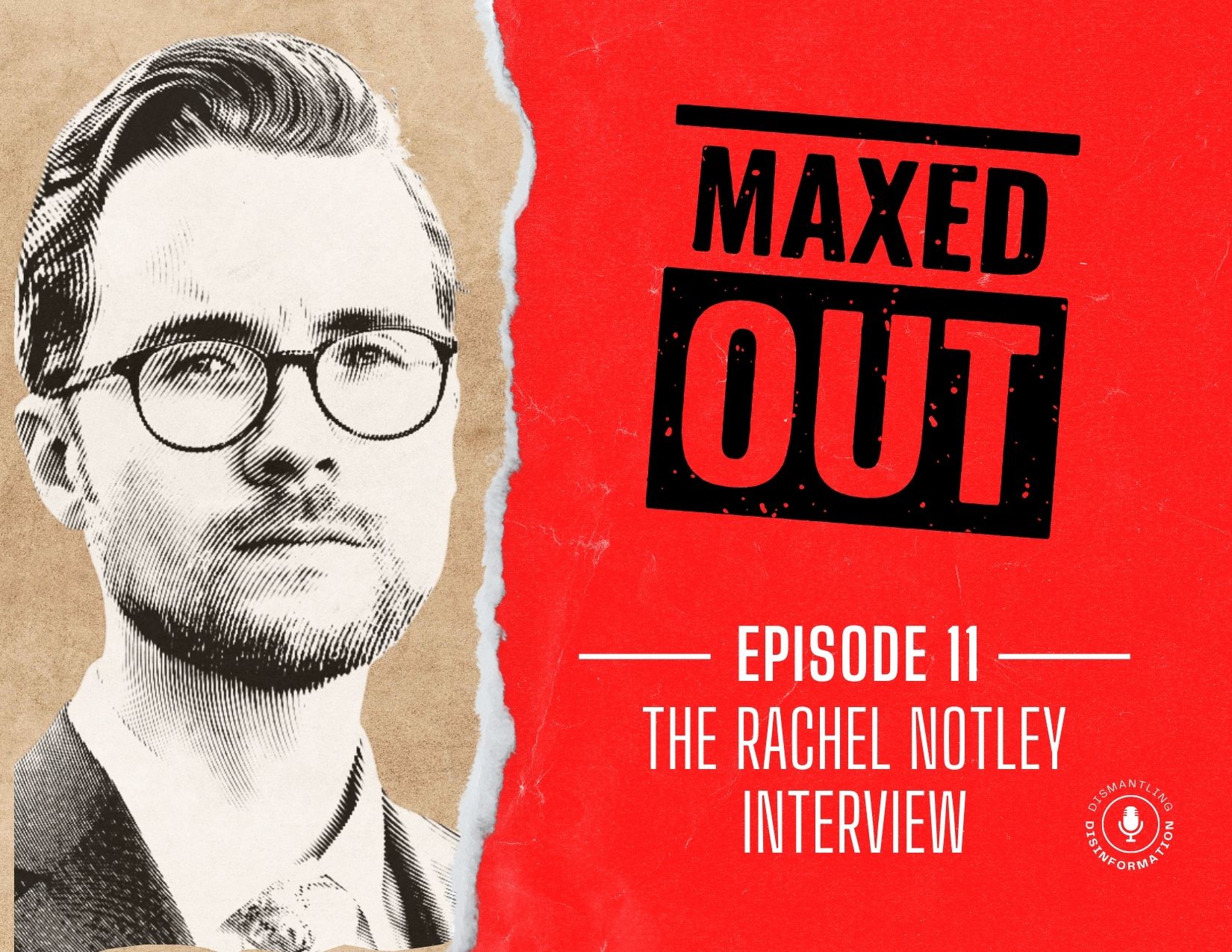Support strong Canadian climate journalism for 2025
Two weeks ago, the Vatican released a statement denouncing the “Doctrine of Discovery,” a series of documents that Canadian governments have used to justify colonization for centuries.
In its denouncement, the Vatican decried the doctrine as “not part of the teaching of the Catholic Church,” adding the documents “have never been considered expressions of the Catholic faith.”
It also recognized the doctrine did not uphold the dignity and rights of Indigenous Peoples and was used to justify immoral acts against them.
The statement was a long time coming, says Andrea Palframan, communications director of RAVEN, a legal defence fund to assist Indigenous Peoples who enforce their rights and title to protect their ancestral territories.
“It’s been a process that the Vatican is responding to tremendous activism and tireless work by Indigenous Peoples,” she added. “It's gone on for, really, generations.”
Palframan calls activists and others who have pushed the Vatican for change the real authors of the denouncement.
In recent years, for example, the Truth and Reconciliation Commission called on the Vatican to denounce the Doctrine of Discovery. Assembly of First Nations National Chief RoseAnne Archibald told Canada’s National Observer last year that she asked the Pope to rescind the doctrine during his visit to Canada. At a mass in the Basilica of Sainte-Anne-de-Beaupré in Québec City, led by Pope Francis last summer, two activists dropped a banner that read, “Rescind the Doctrine.”
Here’s what you need to know about the Doctrine of Discovery, how it fits into Canadian law and what happens now that the Catholic Church has denounced it.
What is the Doctrine of Discovery?
The Doctrine of Discovery is a series of 15th-century papal bulls, which are similar to public decrees or open letters that carry the political and spiritual weight of the Catholic Church.
The papal bulls, authored by Popes Nicholas V and Alexander VI, were penned during the mid- to late-1400s and often written directly to European monarchs looking to expand their empires. Many Indigenous critics and scholars point to them as the ideological framework for the moral and political supremacy espoused by European leaders, from Christopher Columbus to John A. Macdonald and beyond.
One famous bull is Inter Caetera, written in 1493 and published months after Columbus returned to Europe from his first full voyage. Inter Caetera is Latin for “among others,” which is the first phrase of the bull and sets the stage for colonizing missions to exist alongside other Christian practices of the time.
The bull intended to spread Christianity everywhere through a colonizing project led by the monarch of Spain while “securing the salvation of souls and subduing the barbarous nations and bringing them back to the faith itself.”
A similar bull written decades earlier called Romanus Pontifex became a basis for Portugal’s monarch to claim the “new world.”
How does the doctrine fit into Canadian law?
European countries’ claims to the so-called “new world” were justified through religious powers like the Vatican condoning their missions to conquer, proselytize and civilize Indigenous Peoples. That mission became ingrained in the laws of Canada, said Palframan, whose organization has released a course, titled Home on Native Land, delving into the historical and legal foundations of Canada.
In 1823, an American court case called Johnson v. McIntosh ruled that since the United States had won its war of independence against the British, Indigenous Peoples owned no land within its borders. The Supreme Court judge who ruled in the case based his decision on the Doctrine of Discovery, arguing that since European powers discovered the land, they owned it, with Indigenous Peoples only holding a “right of occupancy.”
Canada imported the same legal argument through the 1887 St. Catharines Milling decision, a battle for the land title between Ontario and Treaty 3 nations in northern Ontario. The decision found that the Crown, particularly the provinces, had ultimate discretion over Indigenous lands. It asserted Crown sovereignty over all lands within a treaty save for reservations, which only compose 0.36 per cent of land in Canada. The decision was based on the Doctrine of Discovery.
What happens next?
The Vatican missed the opportunity to reconcile in action by returning some of their assets and property in Canada, which are worth $3.3 billion, to Indigenous Peoples, Palframan says.
The Pope also fumbled the chance “to talk about the land back movement and look on a sort of diocese-by-diocese basis on how they could put reconciliation into action,” she said.
Pope Francis could have also called upon governments to repudiate the Doctrine of Discovery within the legal frameworks of colonial countries like Canada and Australia, Palframan added.
“If it was these colonial powers in the first place that did the very un-Catholic work of twisting the doctrine and manipulating it, then it should be the very same colonial powers that should be called upon ... to untwist our laws from it,” she said.
Palframan recognizes the difficulty of untwisting. Crown sovereignty is asserted in every province and will continue to be an issue as mining development explodes due to the federal government’s Critical Minerals Strategy, which seeks to expand Canada’s critical mineral supply of metals like lithium, copper and nickel needed for the energy transition.
This could set up legal battles with First Nations, she says.
Crown sovereignty is already a source of dispute in some resource projects on Indigenous land, sparking acts of civil disobedience such as the resistance of Wet’suwet’en hereditary leaders in northern B.C., who oppose the construction of a natural gas pipeline across their traditional territory.
“What the Supreme Court is trying to grapple with is the whole project of reconciliation… How can we hold onto Crown sovereignty while respecting Indigenous rights?” she asked
“How can we keep building pipelines, mining and practicing business as usual but just offer Indigenous Peoples this tokenistic participation?”







Comments
“The papal bulls, authored by Popes Nicholas V and Alexander VI, were penned during the mid- to late-1400s ...” Please explain how they could have been written before the existence of the New World was known.
It doesn't really mater what dates are involved as it is clear that these Papal Bulls preceded major discoveries and territorial invasion. As I understand it, the Papal Bulls in question were essentially designed to divide the suspected western lands exclusively between Portugal and Spain, the then dominant, Catholic, sea powers, and explicitly to exclude non-Catholic England. Englands colonial efforts, in Canada, Africa, India and Asia were largely straight forward land grabs, of the 'might-is-right' type, justified post hoc by 'civilization' rationals
While it is true that the colonial governments of Canada declared themselves sovereign, and asserted this sovereignty by force (and we still need to in a world that contains men like Putin), the relationship between the Crown and indigenous tribes is and was different at different times and locations. The current insistence that Canadian colonialism was all down to the Doctrine of Discovery confuses and obfuscates both the useful parts (e.g. Crown Treaties) and the very bad parts (e.g. exterminations) of our colonial history. With reference to Canada, it lacks accuracy, to say the least, to lump the history of BC's colonization (a plain old vanilla land grab) with that of Ontario and Quebec where colonists and indigenies fought wars as allies against a perceived greater enemy (French and/or English and American).
The term I've always associated with the waves of exploration and claiming is "terra incognito" - unknown land, unclaimed by any other civilized nation, and mostly unsettled, at least by any race of known organized, human origins.
Apparently, this term was not used in any of the cited papal bulls; so I am curious as to its origins with respect to "Terra Nova".
"Bulls" is a good word in the context of the altogether onerous "weight and politics" of Catholicism, that first and worst old boys' club, guardians and perpetrators of the first and worst "big lie."
But since this action on the Discovery Doctrine is that of the current Pope (who I gather is generally considered to have a rather too "liberal" interpretation of the sacred/rigid doctrine of the church), couldn't the next all-powerful Pope just reinstate the Discovery Doctrine with another "bull?" And isn't all of this clear tokenism at this point anyway after what this appalling church has done? But even that relatively trifling concession was literally hounded out of these weird old men.
My question to Indigenous people is why not go one doctrine further and denounce Catholicism itself? Would that denunciation not show that their plan was an utter failure since a central part of their arrogant Doctrine of Discovery was to brainwash/indoctrinate/Christianize you?
Isn't it more outrageous that the Vatican has grabbed up 'nation' status for itself? When badness upon badness has acquired for it what any reasonable person of the 21st century would call the character of a thoroughly malignant corporation.